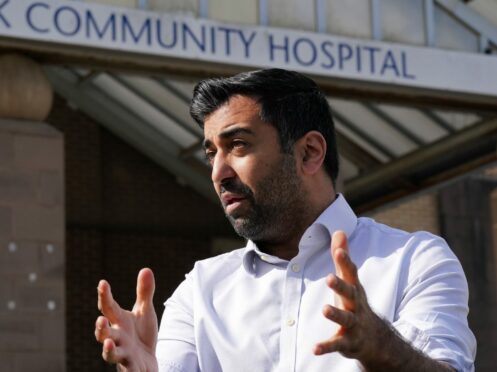Asthma charity boss and rector of Aberdeen University Martina Chukwuma-Ezike is warning the Scottish Government’s new plan to replace inhalers with an environmentally-friendly alternative could “sacrifice” lives for a “nonsense, green agenda”.
The typical “metered dose” inhalers used to treat asthma are being replaced with more environmentally-friendly dry powder inhalers – where clinically appropriate – in an attempt to drive down carbon emissions.
These new inhalers rely on the person’s own breath to work and it is hoped switching patients to the greener alternative will cut down the 79,000 tonnes of CO2 inhalers create every year.
However, Ms Chukwuma-Ezike, chief executive of the Asthma and Allergy Foundation, says the government needs to urgently review this policy “before people die”.
‘These are people’s lives’
Ms Chukwuma-Ezike, who has an “extreme” and potentially life-threatening form of brittle asthma, said the policy is a “life or death issue” for the 400,000 Scots living with asthma.
She said she will refuse to use the new inhalers because if she suffers an asthma attack she will not have enough breath of her own to get the inhaler to work.
The Aberdeen rector said: “Ministers need to urgently review this policy before people die.
“These are people’s lives we are talking about.
“Lives that should not be sacrificed on the altar of some nonsense, green agenda dreamed up by people who do not know the first thing of what it is like to live with asthma.”
She said: “The consequences which will result from this kind of low-level, virtue-signalling are too terrible to contemplate.
“You couldn’t make it up.”
Government defends switch
The Scottish Government hopes the new inhalers will go some way to helping NHS Scotland become net-zero by 2040.
Health Secretary Humza Yousaf was at Douglas Medical Centre in Dundee on Wednesday to hear about the work being done to switch patients over to the new environmentally-friendly inhalers.
Mr Yousaf said: “Reducing the use of emissions from medicines, such as inhalers, will make a significant difference to our overall carbon footprint and we will support patients and medical professionals to make that switch, only where it is clinically appropriate to do so.”
The government estimates the current use of inhalers produces the same amount of CO2 as 9,300 NHS ambulances, cars, HGVs and motorbikes combined.
Lead pharmacist at NHS Tayside’s respiratory network Arlene Shaw added the new inhalers will make sure the NHS reaches its CO2 emissions targets while also “promoting effective treatment”.



